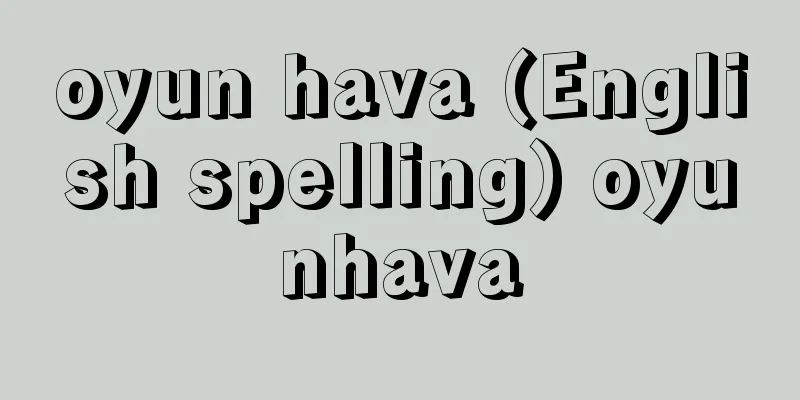Su Shi - Soshoku

|
A Chinese politician and man of letters from the Northern Song Dynasty. His pen name was Zizhan. He was popularly known as Dongpo Jushi. Su Shi was a representative scholar-official of the Song Dynasty and even of early modern China. His life was full of ups and downs amidst political strife, but he never lost his natural cheerfulness and was a strong, broad-minded person who has been revered throughout history, and his poetry and prose are widely known. Su Shi was born in the middle of the Northern Song Dynasty to Su Xun in what is now Meishan County in Sichuan Province, and grew up there. The family lived modestly as small landowners, and he and his younger brother Su Che, who was born three years later, attended temple schools and sat next to each other. At the age of 21, he passed the civil service examination along with his brother, and at the age of 26, he passed the special appointment examination with excellent results, and was appointed as a clerk in Fengxiang Prefecture. He eventually moved to the central government, but when the spirited Emperor Shenzong appointed Wang Anshi and others to promote the New Law (administrative and financial reform measures), he opposed it and became a local official, being posted to Hangzhou, Mizhou and other places. However, at the age of 44, while he was the governor of Huzhou, he was imprisoned by the Imperial Censorship (a judicial body) for slandering the court government through poetry and prose, and faced the threat of the death penalty. This is known as China's first pen-based crime. Fortunately, he was spared death by the emperor's grace and was exiled to Huangzhou along the Yangtze River. While in exile, Su Shi deepened his thoughts while working, aiming for a new life, and produced excellent works including "Fu to Red Cliffs," earning him the nickname Dongpo Lay Scholar. When Emperor Shenzong eventually died and Emperor Zhezong ascended to the throne and restored the old laws, he was appointed to a position as a close aide to the emperor, eventually becoming Minister of Rites, but the new laws were reinstated in the latter half of his reign, and in his later years Su Shi was exiled to Huizhou and then to Hainan Island. He was allowed to return to the mainland, and at the age of 66, he passed away at the end of his eventful life. Su Shi was an intellectual scholar and also a poet with a delicate sensibility. The poems and verses in his complete collection, the Seven Dongpo Anthologies, are as free-flowing as flowing water, and his prose is characterized by its eloquence, making him one of the "Eight Great Masters of the Tang and Song Dynasties." He is also one of China's leading calligraphers. [Kazuyoshi Yamamoto] “Chinese Civilization Selection 2 Su Dongpo Collection” by Tamaki Ogawa and Kazuyoshi Yamamoto (1972, Asahi Shimbun) ▽ “Selected Chinese Poetry 19 Su Shi” (1973, Chikuma Shobo) by Kazuyoshi Yamamoto” [Reference] | |Source: Shogakukan Encyclopedia Nipponica About Encyclopedia Nipponica Information | Legend |
|
中国、北宋(ほくそう)の政治家、文学者。字(あざな)は子瞻(しせん)。東坡居士(とうばこじ)の号で親しまれる。蘇軾は宋代、ひいては中国の近世を代表する士大夫(したいふ)(文人官僚)であり、その生涯は政争の渦中にあって波瀾(はらん)に富むが、それに抗して持ち前の明朗闊達(かったつ)さを失うことのなかった強靭(きょうじん)にして博大な人格は、いつの世にも人々に敬慕され、その詩文は人口に膾炙(かいしゃ)する。 蘇軾は北宋の中ごろ、いまの四川(しせん)省の眉山(びざん)県の町で蘇洵(そじゅん)を父として生まれ、その地で成長した。小地主の階層に属するその家庭の暮らしはつつましく、3年後に生まれた弟の蘇轍(そてつ)とは寺子屋に通って机を並べたこともある。21歳で弟とともに科挙(文官試験)に及第し、26歳のとき制科(特別任用試験)に応じて優れた成績で合格、鳳翔(ほうしょう)府の事務官に任じられる。やがて中央政府に移るが、気鋭の神宗皇帝が王安石らを起用して新法(行財政革新策)を推進するに及んで、それに反対、地方官となって杭州(こうしゅう)、密(みつ)州などに赴任するが、湖(こ)州の知事であった44歳のとき、詩文によって朝政を誹謗(ひぼう)したとして御史台(ぎょしだい)(司法機関)の獄に投ぜられ、死罪の危機に直面する。中国では初の筆禍事件として知られる。幸い皇帝の恩命を得て死を免れ、長江に沿う黄(こう)州に流罪となる。蘇軾は配所にあって労働のかたわら新生を目ざして思索を深め、「赤壁(せきへき)の賦(ふ)」を含む優れた作品を生み、東坡居士を号することとなる。やがて神宗が崩じ哲宗皇帝が即位して旧法を復すると、天子側近の職に起用されて礼部尚書に至るが、その治世の後半は新法が復活され、晩年の蘇軾は恵(けい)州、さらに海南島に流される。そして大陸への帰還が許されてまもない66歳のとき、波瀾に富んだ生涯を閉じた。蘇軾は理知的な学問の人であり、かつ繊細な感覚の詩人でもあった。その全集『東坡七集』に収める詩賦は流水のごとくのびやかで、文は達意を旨として、「唐宋八大家」に数えられる。中国を代表する書家でもある。 [山本和義] 『小川環樹・山本和義著『中国文明選2 蘇東坡集』(1972・朝日新聞社)』▽『山本和義著『中国詩文選19 蘇軾』(1973・筑摩書房)』 [参照項目] | | |出典 小学館 日本大百科全書(ニッポニカ)日本大百科全書(ニッポニカ)について 情報 | 凡例 |
>>: Litigation requirements - Soshoyoken
Recommend
Blue weeping
...Shimenouchi leaves are fully split and linear,...
Slave trade
Trade in buying and selling slaves has existed si...
Irogoshi - A sex master
〘 noun 〙① In Kabuki, an actor who specializes in r...
Akira Ohta
1884-1956 A Japanese history scholar from the Tai...
The Eight Eccentrics of Yangzhou
This refers to eight extremely unique painters wh...
Hynobius retardatus (English spelling)
… [Takahiro Matsui]. … ※Some of the terminology t...
Dry friction
Friction when the contact surfaces of two objects ...
Poesia (English spelling)
…He won a prize at the Paris competition "Sa...
slot
...When the angle of attack of a wing becomes lar...
Fig - Fig
A deciduous tree of the mulberry family native to ...
prime ministerial government
...In the 19th century, the prime minister still ...
Acana - Akana
…It is often called Itoyori. It is also called It...
Decision theory - Ishiketeiron
… Both (1) and (2) are theoretical criticisms, bu...
Uriel Acosta
...He challenged religious taboos with his novell...
theism
...a philosophical doctrine that denies the exist...









